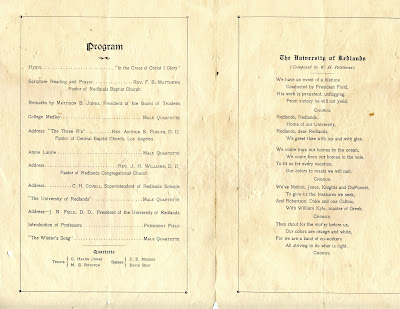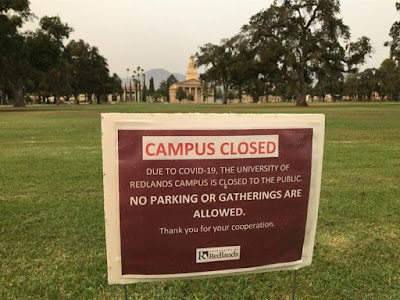Vincent W. J. van Gerven Oei, co-director of open access punctum books, shares his thoughts about global information privilege. As American universities and schools, educators and administrators, support staff and families, scramble to meet students' educational needs and institutional performance indicators, our gratitude to publishers and others freeing up access must be understood within a broader context.
Viral Open Access in Times of Global Pandemic
by Vincent W.J. van Gerven Oei
This post was originally published on March 19, 2020 and is available at https://punctumbooks.pubpub.org/pub/viral-open-access-global-pandemic-covid-19-corona.
In recent weeks, the COVID-19 pandemic has led to numerous
calls for scientific research concerning the virus and the disease to be made open access and freely available to the public. These calls stand in a tense relationship not only with the profit-driven approach to medical research by pharmaceutical companies,
1 but also with the business models of the for-profit academic publishing oligopoly, dominated by a few companies making excessive profit margins that are essentially subsidized by public funds.
2 The current pandemic makes abundantly clear that the public availability of public knowledge indeed saves lives – but it doesn’t do so only
now, it
always does.
Let’s recap.
The
initial report of the WHO on an outbreak of pneumonia in Wuhan, Hubei province, China, dates to December 31, 2019. The first articles in medical journals appear in mid-January, for example in the open-access
International Journal for Infectious Diseases. Rather than wait for publishers to release publicly funded knowledge to the public, a massive online archiving project publicly
released more than
5,000 unpaywalled articles on coronaviruses on Sci-Hub in the same month.
3 On January 30, 2020 the WHO
declared a global health emergency.
On January 31, a
statement was published on the website of the Wellcome Trust, in which a number of publishers and journals, including publishing oligopolists Elsevier, Springer Nature, and Taylor and Francis, agreed that
all peer-reviewed research publications relevant to the outbreak are made immediately open access, or freely available at least for the duration of the outbreak
The term “COVID-19” was
announced on February 11, and on March 11 the WHO
declared the COVID-19 public health crisis a “pandemic.” Two days later, on March 13, chief science advisors from twelve countries released a
statement,
relayed by the Office of Science and Technology Policy of the White House, urging “publishers to voluntarily agree to make their COVID-19 and coronavirus-related publications, and the available data supporting them, immediately accessible in PubMed Central
4 and other appropriate public repositories.”
In response, several of the signatories of the January 31 declaration, including the oligopolists,
agreed to further make “all of their COVID-19 and coronavirus-related publications, and the available data supporting them, immediately accessible in PubMed Central (PMC) and other public repositories.”
The Wellcome Trust statement raises the fascinating question concerning what type of research is exactly “relevant” to the outbreak. As the outbreak of the COVID-19 pandemic is not only tied to the DNA of the SARS-CoV-2 virus, its protein structures, and the way interacts with the human body, but also the field of medicine, and therefore also healthcare, and healthcare funding, and health education, and thus also much broader questions of state organization, economic structures, educational resources – in brief, all the ways in which humans have ordered the world. If we want to come to a full
understanding of the outbreak,
all peer-reviewed research in medical, STEM, social science, and the humanities is potentially “relevant” and should therefore be made open. But that is certainly not how Elsevier c.s. see it.
Then there is also the question of what “duration” means here. The outbreak started officially when the WHO declared it a public health concern on January 30, and for-profit publishers acted a day later. But when will that end? When is all this research that is not temporarily released to the public going back behind lock and key? If
predictions that COVID-19 may become endemic to the human population and circulate on an annual basis like the flu becomes reality, its duration is indefinite, but the free access to medical research most certainly won’t be. As HIV/AIDS researchers have long known, even though a pandemic may claim millions of victims, the paywall remains shut as long as the spotlight isn’t on.
The criminal hypocrisy of the publishing industry’s current professions of minimal decency becomes clear once you check the archive of the Wellcome Trust and find similar calls for open access concerning the
Ebola epidemic of 2018 and the
Zika outbreak in 2016. In neither case do we find the compassionate and understanding signatures of Elsevier, Springer Nature, Taylor and Francis, or many others. One gets the impression that only now that a disease affects the Global North, suddenly open access is something of a moral obligation, an obligation that was not so urgently felt when tens of thousands died in Africa. The position of academic for-profit publishers is therefore clear: the deaths of some are more problematic (for their bottom line and “reputation”) than others.
Opening access went properly viral when schools and universities closed down in the Global North. Suddenly, also non-medical research was made freely accessible. Cambridge University Press
opened up its textbooks “until the end of May 2020”; more than 75 publishers made their publications
freely accessible to any institution with a ProQuest account “through mid-June”; Harvard University Press made its Loeb Classical Library
freely available to school and libraries “until June 30”; and several university presses made their books
freely available on Project MUSE until May 31 or June 30, 2020.
5 Again, only now that school children and students in the Global North are confronted with a limited access to physical learning materials – a daily problem for millions of students around the globe – it appears possible to open up those precious digital files.
As with the temporary opening of access to COVID-19-related articles, the academic presses offering “discretionary” unpaywalling – to a random subset of their catalogs with unknown or poorly argued relevance for the
catastrophe that has
hit our education systems – are doing nothing but engaging in last-minute, haphazard PR, hoping that the realization that publicly funded knowledge is inaccessible to most of us will not dawn too soon on the anxious tax payer, confronted with their restless child at home or scrambling to assemble an impromptu online “learning experience.”
It is not only in times of crisis that publicly available knowledge can save lives. It always has this potential, and it’s our choice.






























![social media post image The Armacost Library condemns systemic racism and anti-Black police violence. We support and commit to anti-racism work while acknowledging our contributions are partial and incomplete. We will continue to make better choices for our community. We are stronger when we value the lived experiences and voices of Black people. library[dot]redlands[dot]edu](https://blogger.googleusercontent.com/img/b/R29vZ2xl/AVvXsEjhTiM3oX4AJaStzxYfYpgDQS9_M6KRtx6Q_4rQn05s4lYTS-rR07TokQcCk6PtiRVBIl46nBcQ2AAakDaOxtkycUgwfpH7TasgOzKS33ghpN-9RtM4BeDwp1hwcRH7oQmDuoAG/s640/condems.jpeg)







